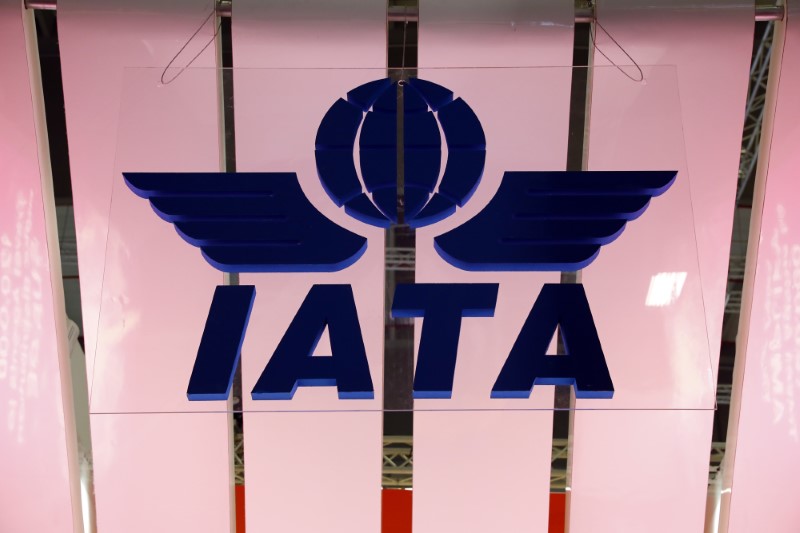
FILE PHOTO: The International Air Transport Association (IATA) logo is seen at the International Tourism Trade Fair ITB in Berlin, Germany, March 7, 2018. REUTERS/Fabrizio Bensch
June 3, 2018
SYDNEY (Reuters) – Trade tensions could dampen economic growth and have a negative impact on travel demand, especially for lucrative business travel that drives airlines’ profits, aviation industry executives said on Sunday.
The Trump administration has renewed tariff threats against China, while key U.S. allies Canada, Mexico and the European Union have been hit with duties on steel and aluminum.
“When you have these situations going on with world trade it’s sending a message that is impacting business travelers for sure,” Gloria Guevara Manzo, chief executive of the World Travel and Tourism Council (WTTC), told Reuters at a major gathering of aviation executives in Sydney.
“They need to wait and see what happens – will their business be impacted, do they need to diversify, go some other places. War in trade is not good,” she added.
Planemakers Boeing <BA.N> and Airbus <AIR.PA> echoed that the uncertainty was negative for business and highlighted that free trade helped to drive economic growth, creating jobs.
“It brings down costs to consumers and creates jobs both with our partners as well as at our company,” Boeing Commercial Airplanes marketing vice president Randy Tinseth told Reuters.
Airbus said the aviation industry existed because people were able to travel freely and markets were open.
“We are in a worldwide industry here. We see it in a negative way because it is putting borders and putting constraints for everybody, including our customers,” Airbus Chief Commercial Officer Eric Schulz told reporters.
Asked about the impact on tariffs on its business, Boeing’s Tinseth said it would not have a material impact on the company’s financials.
“For example, I think 90 percent of the aluminum we acquire comes domestically,” he said.
Airbus’ Schulz said it was too early to give an answer as to the direct financial impact on the European company.
Guevara Manzo also said the WTTC is concerned about tariffs because it means less money for businesses to invest in critical infrastructure, such as ports, airports and hotels. “Steel for hotels is like flour for bakeries,” she said.
The annual meeting of the International Air Transport Association (IATA) brings together about 130 CEOs and 1,000 delegates.
This year in Sydney, concerns that a three-year run of unusually high returns might end due to rising fuel, labor and infrastructure costs are in the spotlight.
(Reporting by Jamie Freed, Tim Hepher and Victoria Bryan; Editing by Robert Birsel)

